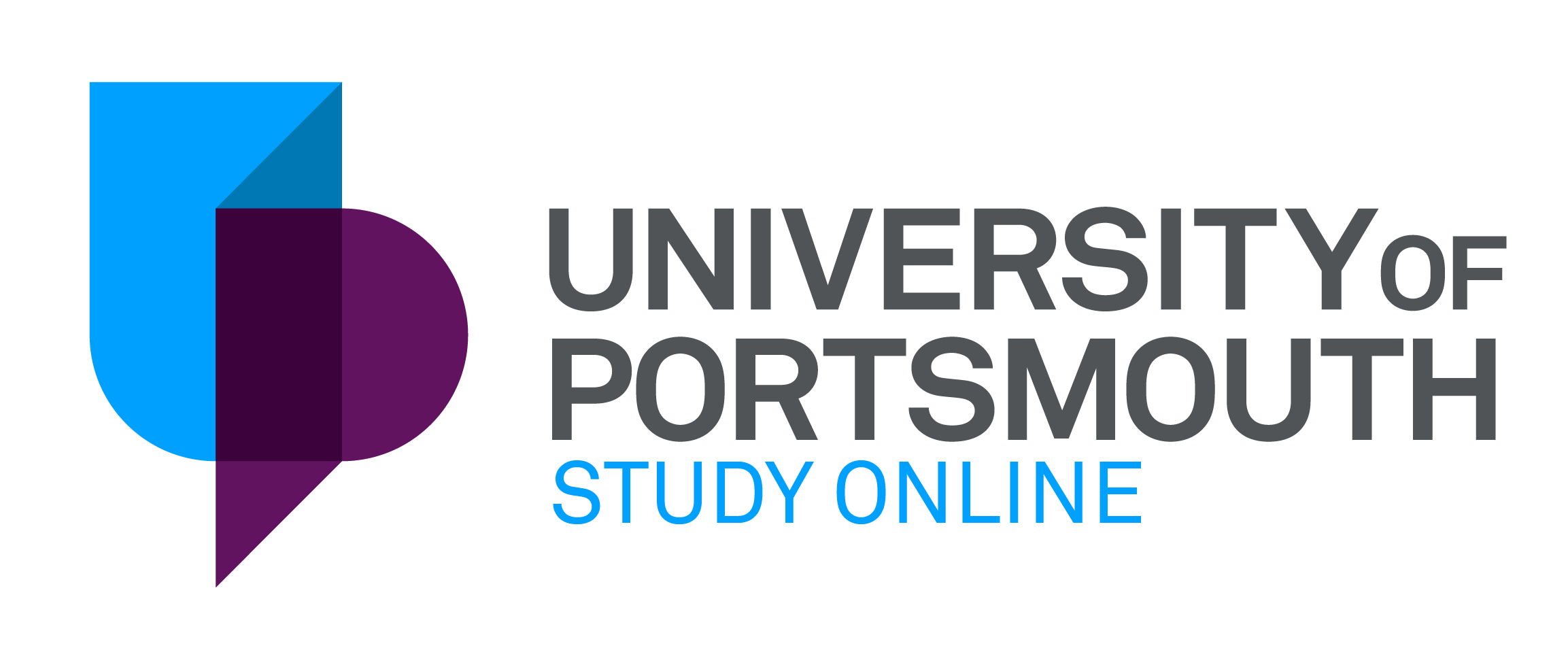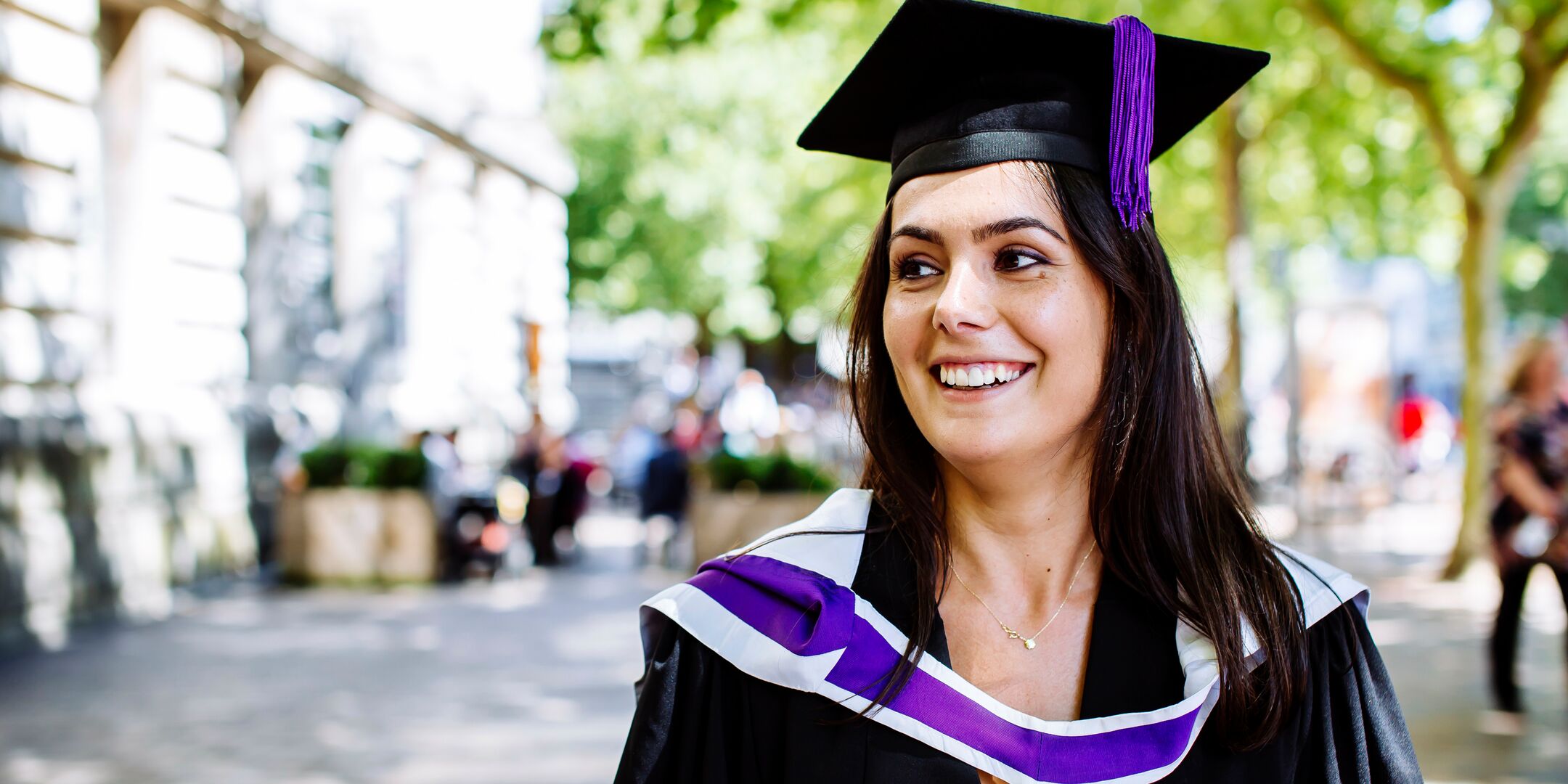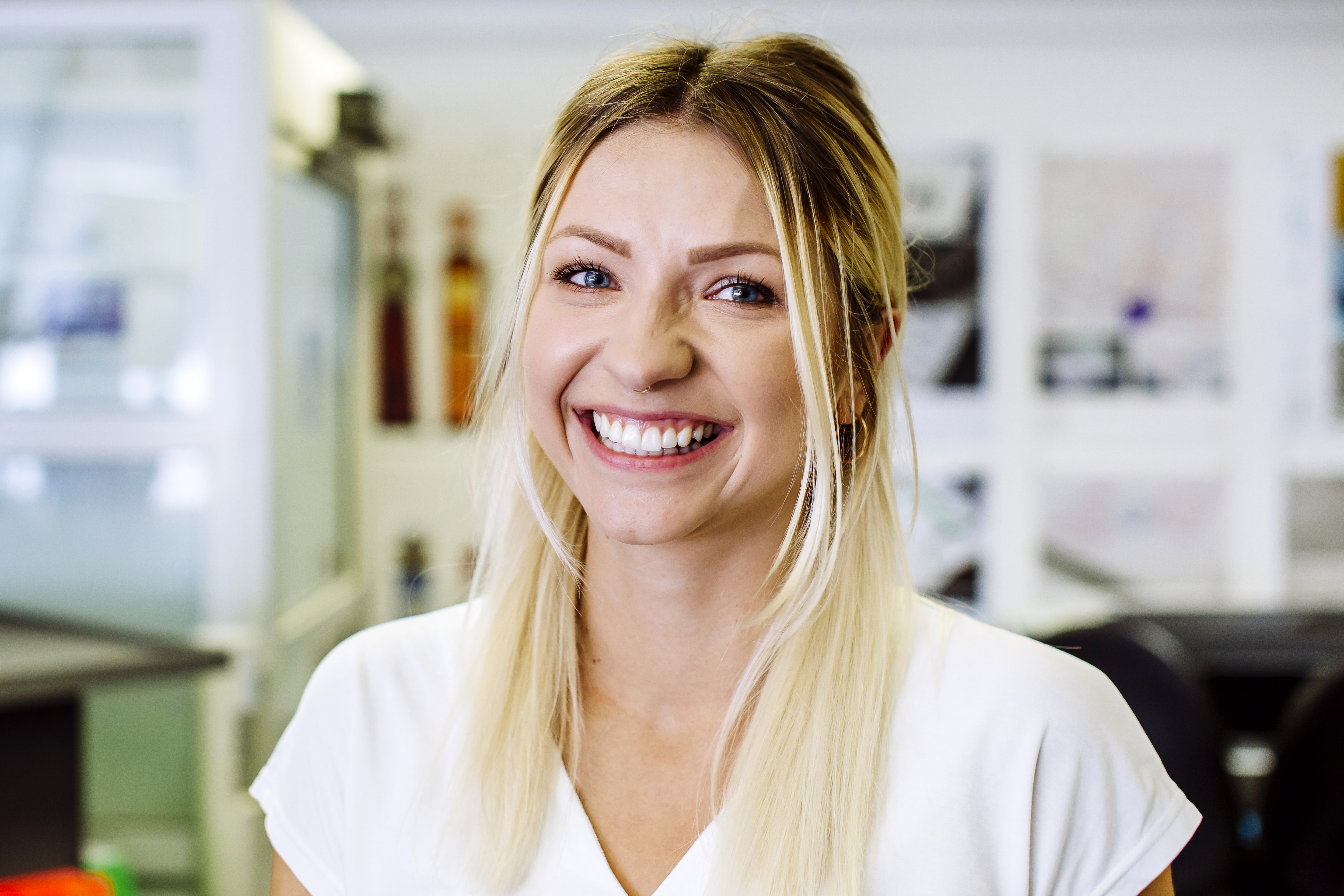- My name is Maddy. I've been working at Portsmouth for about a year and a half now. And, yeah, I've done loads of these events, so any question you want to ask me at all, please just go ahead. And I'm joined today by Jillian. If you wouldn't mind just telling us a little bit about yourself, Jillian, before we get started.
- Yes. Nice to be here today. Well, my name is Jillian Bedeau-Callender. I am from Trinidad and Tobago.
What can I say? I work in the public service as a development control inspector with the ministry of planning and development. I'm a mother of two.
I work in the ministry of planning and development. The division is called town and country planning development-- division. What we do, we grant planning permission for persons who would like to develop their land be it in the building a home or subdivision or creating lots or cities or communities.
The masters that I am doing is construction of masters in construction project management. And what I basically do, I do the reports and site visits for when applicants submit their applications for such approvals.
MADELEINE LLOYD: Brilliant. And so when you were looking at courses, did you wanted to do a construction specific master's degree or did you look at a few different options, or what was your process of getting here like
JILLIAN BEDEAU-CALLENDER: Well, I did an associate degree in project management at the university in my country, and I was always told by one of the lecturers that I shouldn't study or-- he advised students that they shouldn't study pure project management. It should be married with something else. So based on the field that I'm in at work, I deal with a lot of draftsmen and surveyors, and I at some point in time I would be on sites.
And it kind of piqued my interest. I said that I can marry them both, and I start searching for something that has the both things involved. I did another short course in construction project management, a certificate course, and that is where I kind of whet my appetite in the construction project management field.
Yup. After I graduated, I then started looking for courses online. Because at the time, because of the pandemic, you couldn't go anywhere and all that. So I then tried to look for courses online. And that is how I kind of-- my journey kind of started along that line.
- Once you started on your course as well, did you find that you still had a high level of support from either your lecturers or other parts of the University, as well?
- In the beginning it was kind of rocky because it's the first time I've done any course online. But the support was really good. Chili direct me. If he couldn't help me out with anything specific, he would direct me on where to go and who to send an email to, or talk to my student advisor.
So the support was there. The lecturers were very supportive. There were a lot of videos to look at, especially in the library, to help. And even though the videos were there, there was still support if you still needed that additional help.
The Moodle system was kind of difficult for me, as a first time user. For me it was a lot of trial and error. I got through. When I couldn't get through it, the support was there. IT support was there, lecturer support was there. The advice I could give anyone starting and have to deal with the module-- the Moodle-- they sent a lot of instructive email. Just follow the emails.
Take your time, treat step by step and everything is right there. And even if you still didn't understand it that way, it's still-- there's the support still to continue helping you any time to get it done. So yeah, it was rocky at first. But now, it's a breeze.
The length of time was one. Because I didn't want to choose something that I have been studying forever. So the length of time of the Masters was one that stood out for me. And what was being taught in the Masters is what stood out for me. There were areas that I believe in my career or what I wanted to do in later on, it will apply to that.
So this is what made me choose it, is based on what was there. I was excited to do the BIM module. Because it was something when I read on it, it was something new to me. And just to know that you can-- there's a software that can make you see what you design before you actually built it and it will cut back on costs, I was excited to do that module, in particular. But based on this structure, that is what made me choose the University.
- How much does studying online change your experience from if you were studying on campus?
- Less distraction from friends. Because you tend to go-- when you go in the face-to-face, you tend to meet a lot of people. Sometimes the group study would be great. But when I did this online, even though it was new, it was hard for me up to that point. Because I usually study with my friends and my peers, and we could bounce things off of each other.
But with the online study, I could go back any time and read my work and go back to the videos. Sending an email to that lecturer and asking a question, they always give you that support and that response. If they can't give you the response in the time like you want to, at some point in time, they apologize and don't give you the response.
But it was very different if you are a person that needs that company or body around you it will be kind of difficult, I knew. But at the end of the day, you still learn to deal with, to cope with it. It's just like COVID. COVID is something new, but we have to deal with it. We have to live around it. So it's something like that. At some point in time, you have to realize, well, if you want to go and do this online study, you have to make the time and you got to get it done.
MADELEINE LLOYD: Yeah.
- I will say for fuller career development, yeah. Doing the associate degree, I didn't feel complete. Yeah, so I needed something else to marry that and bring it together and make it a little stronger. In my current field, yeah, it helped. It will help, promotion-wise, because I'm in the public service and there are other ministries that deal with direct infrastructure. So like the Ministry of Rural Governments and Local Governments, and we have another one that deals with all the facilities, we call it UDCORP.
If I want to go into these areas, it will help. If I want to go and do my own thing after-- consultancy or anything like that-- it will help. So I believe yes, it will help me advance in my career, where I am now and if I want to go in the future, also.
- With children-- [LAUGHS] with children, you have to go according to their timetable. But I was told once that it's recommended to have at least three hours a day for studying on your Masters, for you to kind of absorb what was done. With my frame, the best time I do work, it's in the morning time when my children are sleeping and everybody is sleeping.
So my schedule would be more or less early mornings, for me. I work during the day, so sometimes I don't have a strict schedule. But I have to make sure that every week, I put something in to get the work done. Another thing I have to say, exercise is very important. Exercise is very important.
As we get older, we have these things called high blood pressure and diabetes and all these things. And if we don't add in a little exercise with our study, it could be very frustrating. And you might think that, oh my God, I'm overwhelmed. But sometimes you just need to check your diet and your exercise. So I think add it also in your schedule is very important. You know, what for me--
MADELEINE LLOYD: Do you think you have to be-- you've to be quite organized?
- Oh, yeah. I think anybody studying project management have a little something [LAUGHS] for being organized.
MADELEINE LLOYD: Yeah. Yeah, I know someone else I worked with, she used to like, literally, in her calendar block out time like you would a meeting for when she would work. Because she was like you, human resource manager, was Julie. So she used to literally like, put in meetings by herself where she'd work out, when she would do all of her studies.
But then equally, I know some other people who he would do the same. He would say, I need to get my work done. But he would do it in the evenings after his kids went to bed as well.
- That part was wicked for me. It was. I was falling asleep that time. So it's best I wake early, I wake up earlier. [LAUGHS]
MADELEINE LLOYD: Yeah, so it's-- I think kind of what I'm hearing is as long as you're committed to your studies, you can find a schedule that will work for you.
JILLIAN BEDEAU-CALLENDER: Yes, you have to. It depends on the individual and how you function, what you have to do during the day. And to do such a heavy program, I don't think anyone want to start something to fail. So you have to make the time, even if it's early in the morning, late in the night, midday, you have to find that. If it's an hour you have to find that time.
And also, with all your assignments, you have deadlines anyway to meet. So whatever you do, even if you don't pick up your book, you don't look at a book, you don't look at the lectures for the week, remember, you still have an assignment date coming up.
If you don't have much of the-- your writing skills is not strong, there is still the arts session there that I had the opportunity of using it at some point in time when I wasn't too confident about my writing skills. And the assistance is there for that. So even if you think your writing skills is weak, there is the assistance for it, too.
Other skills-- just be patient. Again, you chose to do these studies. And the help is there, the support is there. Just make use of all the support that you are given. Because I mean, I'm being bombarded with emails on, if you need any assistance with anything, the student advisors, the lecturers. If you need help with anything, they always, at some point in time, ask.
If you need help, there's a section. If you need help, the library have this. So everything is there. So just the motivation, if you started the program and you want to complete it, I think that's the best skill there. You must be determined to finish.
MADELEINE LLOYD: Yeah. And not being too scared to ask for help if you think you need some.
JILLIAN BEDEAU-CALLENDER: Yes. Absolutely. And if they don't know the answer, they will find it and get back to you.
MADELEINE LLOYD: I can confirm. I do that so often, where I get a really good question from an applicant and I go, I'm not sure. I'll go away and I'll find out. And I'll call you back tomorrow. And we both come away having learned something. So if you ask them a hard question, they're probably grateful.
JILLIAN BEDEAU-CALLENDER: Yeah. I like the fact that they say they don't know and they will get back to you. I like the fact that they can admit, OK, I think I will check on it for you and I'll get back to you. Instead of leaving you high and dry, send an email and months-- the email is still there. But the mere fact that they can say, OK, I will find out and get back to you. To me, that speaks volumes to me.
- Yeah. Yeah, it's so lovely speaking to students like you. And I find it every time I do one of these events, hearing about the lecturers as people. Because I think when you're studying online, it's so easy for students and lecturers and everyone to think of each other as just--
JILLIAN BEDEAU-CALLENDER: Objects?
- Yeah, like you're on a screen. You don't really get that personal touch like you do in person. But the way you were describing they would reply to your email three weeks later go, I'm really sorry, I was so busy. It makes it sound like you really have that kind of human touch to it still, even though you're online.
JILLIAN BEDEAU-CALLENDER: Yeah. Yes, I felt that way. I was worried in the beginning because my children were experiencing online studies for the first time. And I was frustrated because I was wondering if they would get it. And I was wondering if I would end up in the same position as they. OK, I started this program and then I was thrown into the sea. You know?
And one of our lectures in the first module let us know one time, you're doing a Masters. Come on, we can't spoon feed you all the time. I mean, at the end of the day, it was tough love. But it made you understand that you're not doing a diploma certificate. You're doing a Masters. And you have to operate with that level of assertiveness to get things done.
One, be a little more patient and relax. Yeah, I was all over the place. I think I had a lot of anxiety at times. [LAUGHS] Yeah, if I was a little more relaxed I think that would have helped me a lot. But again, it was something new to me. So the anxiety was there, the struggle was there. So that's the only thing I would have done differently.
And then Chili, and he given me that advice in the beginning, to me, was very important to me. Because I may have chosen a Masters, I may have been finishing in the next four years and I would have been doing something that I didn't want to do. And I really enjoyed the structure of the program. I enjoyed it. So yeah, that's the only thing I would have done differently-- relax and just take my time. That's about it.
MADELEINE LLOYD: Yeah. Yeah, and trust that it will fall into place.
- Trust the process, as they say. I would trust the process.
.png?width=180&height=222&name=UoP_Study%20Online_Stacked%20(1).png)

.png)

